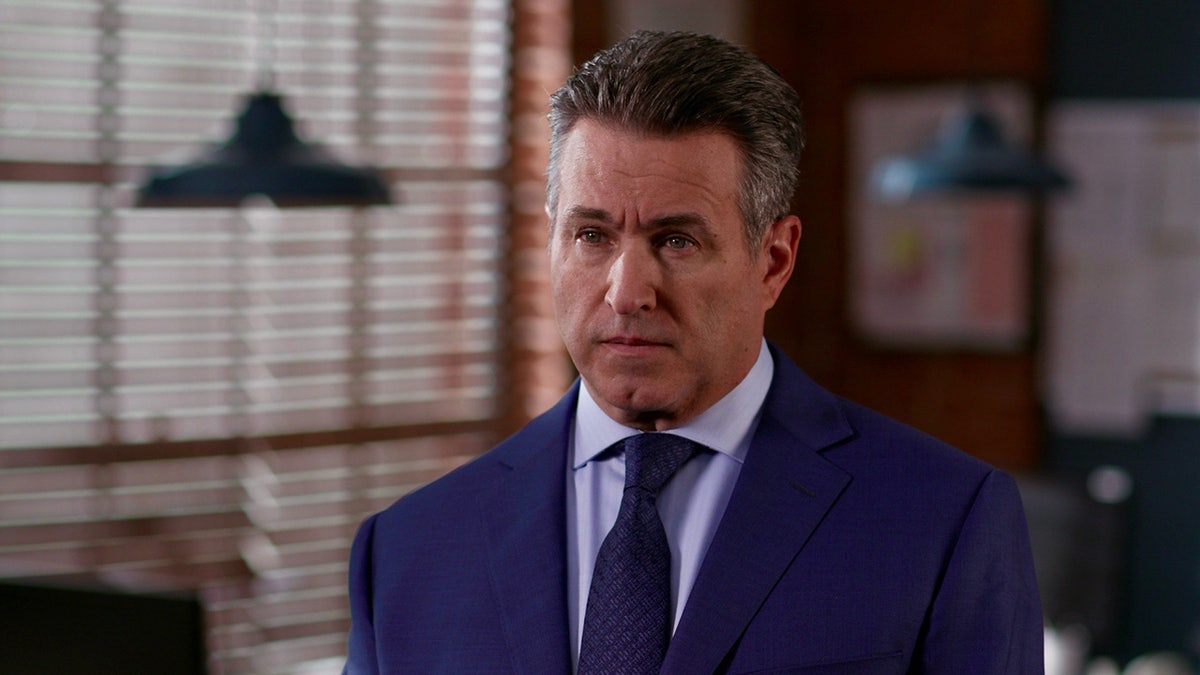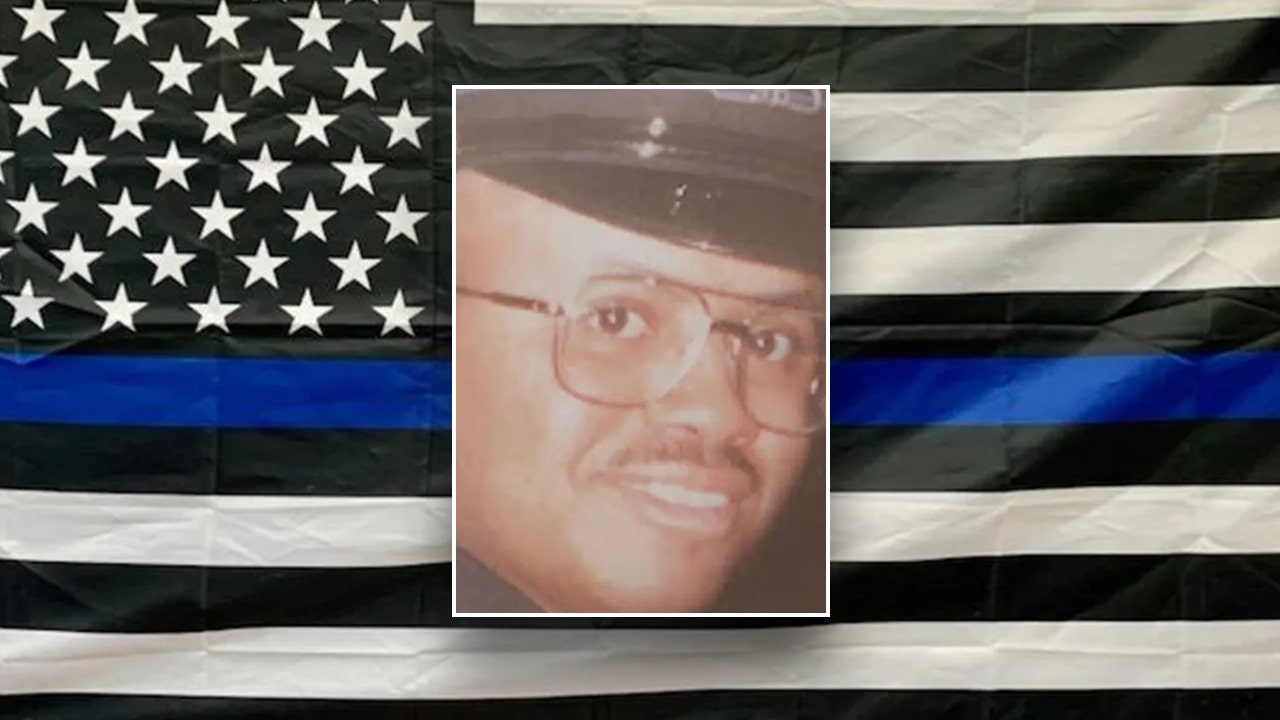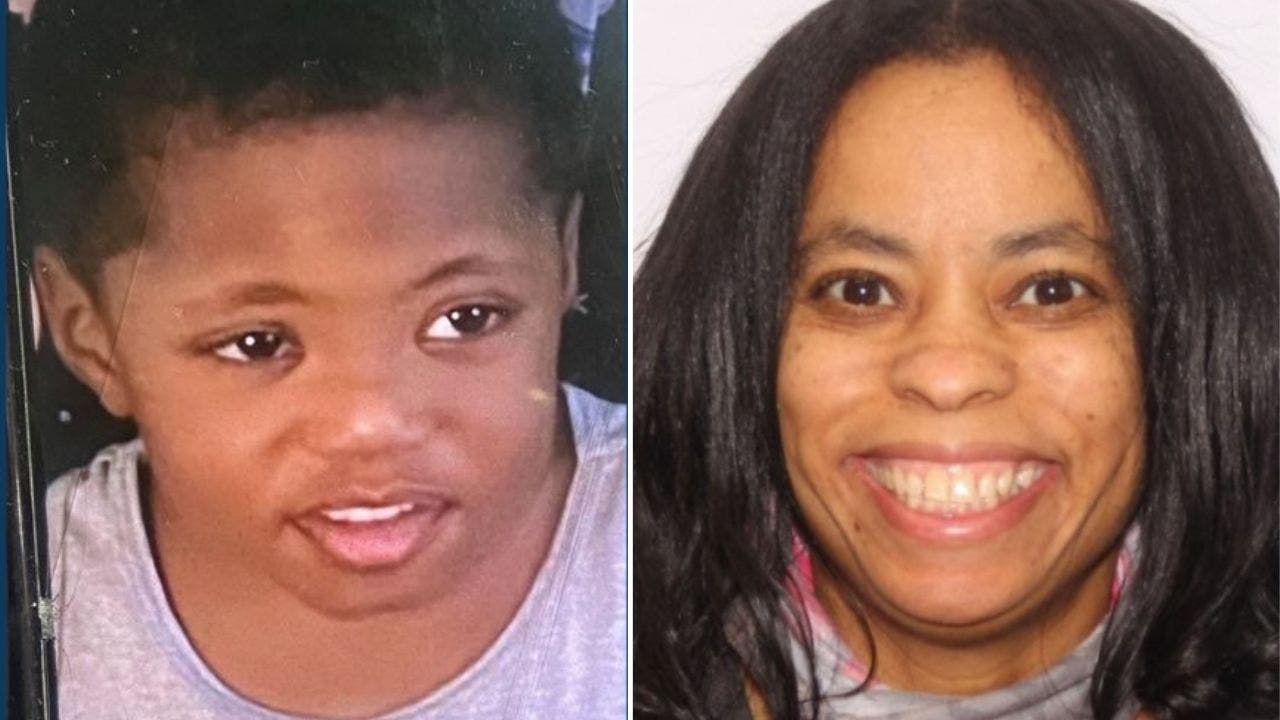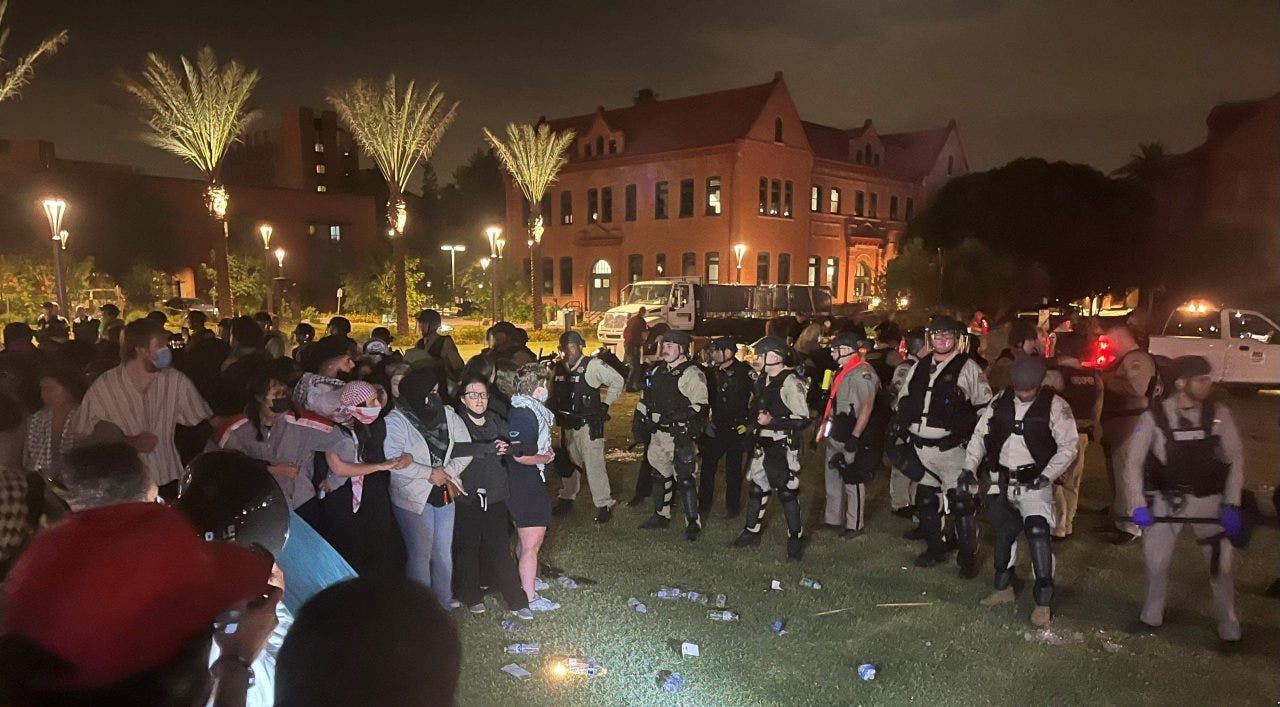On the night of Oct. 16, 2001, Corporal Michael Douglas Beverly was standing in front of his unmarked police car when he was gunned down.
Officers who rushed to the scene found the 11-year veteran of Pennsylvania’s Chester Police Department lying on his back and shaking. His car keys were still clenched in his hand, and his gun was secured in his holster. Multiple bullet holes were seen on his face and chest.
Investigators tried calling out the 36-year-old’s name. He didn’t make it. Beverly left behind a wife of 16 years and their five children.
GARY HEIDNIK’S ATTORNEY TALKS ‘INSANE’ HOUSE OF HORRORS KILLER IN DOC: ‘THERE WAS A METHOD TO HIS MADNESS’

Corporal Michael Beverly was shot and killed while on patrol in 2001. (Bright Spot Content)
“This was a good person,” Chris McMullin, a Philadelphia native and a lieutenant with the Bucks County Sheriff’s Office, told Fox News Digital.
“He was dedicated to his job, but he was also a dedicated family man,” McMullin shared. “And he was just as dedicated to the community.”
The murder, which took place in the crime-ridden Chester Gardens area, is being explored on Oxygen’s true-crime series, “Philly Homicide.”
It features new interviews with former and current Philadelphia-area detectives, as well as loved ones and those closely connected to cases that took place in the city known as America’s birthplace.

Chris McMullin, a lieutenant with the Bucks County Sheriff’s Office in Pennsylvania, is the host of Oxygen’s “Philly Homicide.” (Bright Spot Content)
McMullin, the host of the series, previously spent several years as a Philadelphia Police Department patrol officer working his way up to becoming a detective with the Bensalem Police Department. He described how the men in blue were “relentless” in finding out who killed Beverly.
“That was one of the reasons why I wanted to tell this story, as well as the others we explored in the series,” McMullin explained. “I wanted to show how hard these detectives work for justice, to bring justice in the name of victims and their families. These detectives want to protect our society. And in this case, they vowed to find out who killed Corporal Beverly.”
Eyes turned to the Boyle Street Boys, a street gang that, according to court documents, used “extremely violent tactics” to control their younger members and “street-level salespeople.” Their goal was to fiercely protect their “turf” for cocaine sales and distribution.
FOLLOW THE FOX TRUE CRIME TEAM ON X

Michael Beverly was survived by his wife and five children. (Bright Spot Content)
Members saw themselves as a “family” bonded together by loyalty. Senior members would discuss whether certain individuals who were viewed as a threat needing to be killed.
“They backed up their threats with violence,” said McMullin. “I hate to pay them a compliment, and I don’t mean it that way, but they were the real deal. They were not just a lot of talk. They would carry through with threats.”
Still, investigators were met by a “wall of silence” from the community.

Michael Beverly is seen here with his mother. (Bright Spot Content)
“Chester’s a rough city,” said McMullin. “I’ve had cases where people didn’t want to speak to me, because they were afraid of retaliation. You can’t blame them for that. It’s difficult. You have to work to gain the trust of the public. And to keep it, you have to keep your word. You can’t blame anyone who is afraid to talk. And in this case, it was a gang terrorizing an entire city.”

Chris McMullin spent several years as a patrol officer with the police department in Philadelphia. (Bright Spot Content)
And the slaying hit close to home. The series described how Beverly never got over the 1993 shooting death of his patrol partner, Connie Hawkins. According to The Philadelphia Inquirer, he was active with the Delaware County Law Enforcement Memorial Foundation, a group that aimed to honor fallen officers in the line of duty. He wore a bracelet in Hawkins’ memory.
Beverly found solace in immersing himself in activities involving his children. The outlet reported that the U.S. Marine Corps veteran was active with the Rose Tree Soccer League and was an assistant basketball coach.
SIGN UP TO GET THE TRUE CRIME NEWSLETTER

A young Chris McMullin is seen here with his father. (Bright Spot Content)
Detectives later learned that Beverly had tried to be a mentor for a young man in the community named Maurice Day. But the last number Beverly called before his murder was not Day, but Gloria Adams, who lived steps away from where he was killed. According to reports, Beverly called Adams about 10 minutes before getting shot to death.
A visibly shaken Adams told detectives that she had known Beverly for years. She described him as a positive role model for her son – Day. She explained how Beverly tried to talk to the 18-year-old, who seemed to be looking for a chance to join the Boyle Street Boys. But when they questioned Day, he claimed that he had been at his girlfriend’s house on the night of the shooting. She corroborated his claim.

Michael Beverly’s case nearly went cold. (Bright Spot Content)
The case seemingly went cold – until October 2002. A woman, arrested for drug possession, claimed she had witnessed Day shooting Beverly. The prosecutor, who said that Day had “executed” Beverly, later argued that Day had been motivated to kill because he had been “teased, taunted and ridiculed” by members of the Boyle Street Boys, the Delco Times reported.

Michael Beverly was trying to mentor Maurice Day. (Bright Spot Content)
According to the series, Day was frustrated over Beverly’s friendship with his mother, fearing his street credibility would be ruined.
“I don’t want to comment on that – I never spoke to the kid,” said McMullin. “It was my interpretation from what I know about this case that it was a peer pressure thing on top of the fact that he didn’t want to be labeled as a rat. But I can’t say with any certainty why he did what he did.”
What is certain, McMullin said, is that police refused to give up on finding Beverly’s killer.
GET REAL TIME UPDATES DIRECTLY ON THE TRUE CRIME HUB

Corporal Beverly was a U.S. Marine Corps veteran. He served with the Chester Police Department for 11 years. (Bright Spot Content)
According to the outlet, a gang member later testified that Day admitted to killing Beverly. Day’s cousin, who was not a gang member, also gave crucial testimony.
“He told me he killed the cop – he shot him,” the witness told the jury, as quoted by the outlet.
Day, 20, was found guilty of first-degree murder. He was sentenced to life without parole. In the episode, Beverly’s sister is heard saying she was content with the sentencing, versus Day getting the death penalty.

Maurice Day is currently serving a life sentence. (Pennsylvania Department of Corrections)
CLICK HERE TO GET THE FOX NEWS APP
“I guess she’s content knowing that he can sit there for the rest of his life and think about what he did,” said McMullin. “Sometimes people think that’s worse than death.”
Today, McMullin hopes that Beverly’s legacy will be remembered, as well as those who never gave up on finding his killer.
“Justice doesn’t always come easy,” McMullin reflected. “Solving a case takes a lot of dedication and determination. I want people to see that detectives all over the country, but specifically in the Philadelphia region, are dedicated and want to protect society. I’m trying to show that at times there have been some bad cops, yes, but there are a lot more good ones.”
The “Philly Homicide” episode “End of Watch” airs Oct. 26 at 9 p.m.






